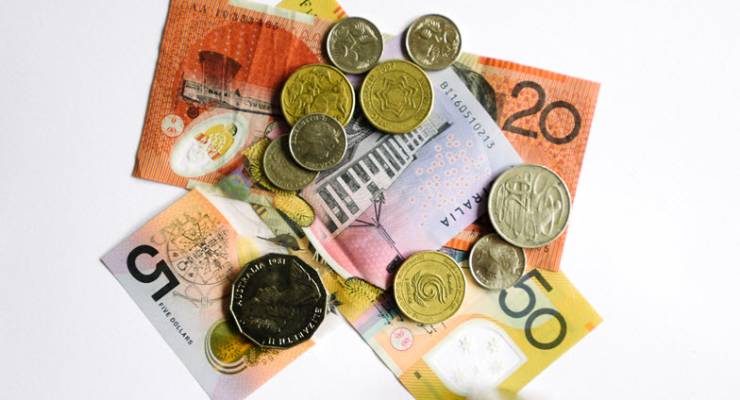
Australia finds itself one step closer to a cashless future today, as the government announced it would accept the recommendations of the Black Economy Taskforce to ban big cash payments.
Paying a business more than $10,000 in cash will be against the law from July 1, 2019. To be clear, this refers to transactions involving physical notes and coins, not electronic transfers. The rule will exclude consumer to consumer non-business transactions (buying a second-hand car, say), and transactions with financial institutions.
Cash was already fading as we “tap and go” our way through our lives. Cash payments in Australia now account for under a third of transactions, one of the lowest rates in the world. The government is eager to further hasten its departure.
The Black Economy Task Force reports that cash is being used to buy “homes and apartments, luxury cars, jewellery, school fees, boats and other high-end goods”. Carrying enough cash to buy a house? I find that a bit suspicious. Where precisely does a person find so much? And that’s precisely why cash is in the government’s cross-hairs.
Data matching programs can track your transactions so long as they move through the world of banks and credit cards. If you are paid in cash and obtain goods and services with those same notes, the government is none the wiser as to what you’re up to. That is terrible for its ability to collect tax and fight crime. (And also for the its ability to monitor your every move. Are we really so relaxed about that?)
The folding stuff
The RBA has been examining with interest measures abroad to eliminate the largest banknotes. Europe got rid of its biggest banknote: a 500 euro whopper that they were sure was mostly used for trafficking of substances, people and arms.
In Australia, the $100 note is one of the most numerous banknotes, and yet one of the most rarely seen. Perhaps they’re all under the mattresses of the wealthy but fearful. Perhaps briefcases of them are changing hands in the carpark of an outer suburban McDonald’s late at night. Either way, they’re a potential target of any government eager to make a bit more of the nation’s financial activity visible.
Says the Black Economy Task Force, “We are not yet calling for the abolition of cash or the banning, reissuing or restriction of $100 notes”. Note their use of the word “yet”.
One day — perhaps not too far in the future — any cash we have will simply be a souvenir of another era. Let’s hope that future is not an Orwellian dystopia of total surveillance.








This is why I think the powers that be made the wrong call in allowing credit card surcharges. If digital payment is becoming the standard, then the cost of that should simply be included within prices. After all, handling cash incurs expenses too and that’s folded into the price of goods and services.
I presume electronic payments incur higher costs than cash payments since financial institutions charge merchants for them. I have long wondered at what price it is more efficient to pay electronically than in cash. My current threshold is $20 but I’m contemplating cutting that to $10.
As a busker, this sucks big time.
Here here! Bad for any artist.
How is using cash a negative?
People who live very remote find that its impossible to relie on eftpos/ card transactions as the ‘machine’ is often down and repairs are weeks away.
Anyone who has been through a cyclone or wide scale natural disaster will have experienced the frailty that a cashless economy relies upon, it is not a reality and probably never should be.
Are the communications network, NBN going to suddenly work well in very remote regions when it doesn’t even happen in cities??
Stupid thoughtless metropolitan bullshit planning, again.
How are they planning to detect / police it?